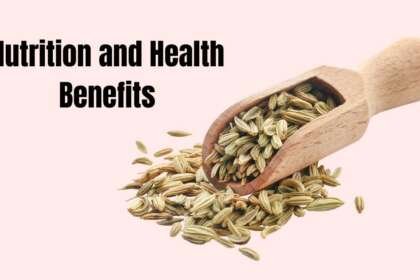Joint pain is a common issue that affects millions of people worldwide. Whether it’s due to arthritis, injury, or aging, joint pain can significantly impact mobility and quality of life.
While medication can provide relief, incorporating anti-inflammatory foods into your diet can be a natural and effective way to reduce inflammation and alleviate joint pain.
In this article, I’ll explore 10 anti-inflammatory foods that can help you manage joint pain and improve your overall well-being.
1. Fatty Fish (Salmon, Mackerel, Sardines)
Fatty fish like salmon, mackerel, and sardines are rich in omega-3 fatty acids, which are known for their potent anti-inflammatory properties. These fatty acids help reduce the production of inflammatory compounds in the body, thereby reducing joint pain and stiffness.
Note
According to Dr. Andrew Weil, a renowned integrative medicine expert, “Omega-3 fatty acids have been shown to be beneficial for joint health and can help reduce inflammation in the body.”
2. Turmeric
Turmeric is a golden spice that contains curcumin, a powerful compound with remarkable anti-inflammatory properties. Curcumin has been shown to be as effective as some anti-inflammatory drugs in reducing joint pain and swelling associated with arthritis.
According to Journal of BMJ Open Sport and Exercise Medicine, researchers found that turmeric supplementation significantly improved joint pain, stiffness, and physical function in patients with knee osteoarthritis.
3. Ginger
Ginger is another potent anti-inflammatory spice that has been used for centuries in traditional medicine. It contains compounds called gingerols, which have been shown to inhibit the production of inflammatory molecules in the body.
According to the Arthritis Foundation, “Ginger may help reduce inflammation and muscle pain, making it a potential ally against arthritis-related joint pain.”
4. Broccoli
Broccoli is a cruciferous vegetable that’s packed with antioxidants and anti-inflammatory compounds. It contains sulforaphane, which has been shown to block the production of enzymes that contribute to joint inflammation and cartilage damage.
Note
Dr. Joel Fuhrman, a board-certified family physician and author of the book “Eat to Live,” recommends broccoli as a key component of an anti-inflammatory diet for joint health.
5. Green Tea
Green tea is a rich source of polyphenols, particularly epigallocatechin-3-gallate (EGCG), which has potent anti-inflammatory properties. EGCG has been shown to inhibit the production of inflammatory molecules and reduce joint pain and cartilage damage in individuals with arthritis.
According to a study published in the journal Arthritis Research & Therapy, green tea consumption was associated with a reduced risk of developing rheumatoid arthritis.
6. Berries (Blueberries, Strawberries, Raspberries)
Berries are packed with antioxidants and anti-inflammatory compounds, making them excellent choices for reducing joint pain and inflammation.
Blueberries, strawberries, and raspberries are particularly rich in anthocyanins, which have been shown to inhibit the production of inflammatory molecules in the body.
Note
Dr. Michael Greger, a renowned plant-based nutrition expert, recommends incorporating a variety of berries into your diet for their anti-inflammatory benefits.
7. Olive Oil
Olive oil is a staple in the Mediterranean diet and is known for its anti-inflammatory properties. It’s rich in oleocanthal, a compound that has been shown to have similar anti-inflammatory effects as ibuprofen, a commonly used anti-inflammatory medication.
According to a study published in the Journal of Nutrients, individuals who consumed olive oil experienced a reduction in inflammatory markers and improved joint function.
8. Walnuts
Walnuts are an excellent source of anti-inflammatory omega-3 fatty acids, particularly alpha-linolenic acid (ALA). They also contain antioxidants and phytochemicals that can help reduce inflammation and protect against joint damage.
A study published in the Journal of Nutrients found that individuals who consumed walnuts experienced a significant reduction in inflammatory markers and improved joint health.
9. Pineapple
Pineapple is a tropical fruit that contains bromelain, a enzyme with potent anti-inflammatory properties. Bromelain has been shown to reduce inflammation, swelling, and pain associated with arthritis and other joint conditions.
According to the study published on Evidence-based Complementary and Alternative Medicine, “Bromelain may help reduce inflammation and pain associated with arthritis, as well as improve mobility and joint function.”
10. Tart Cherries
Tart cherries are a rich source of anthocyanins, which are powerful antioxidants with anti-inflammatory properties. These compounds have been shown to reduce inflammation and alleviate joint pain and stiffness associated with arthritis.
A study published in the Journal of Osteoarthritis and Cartilage found that People with mild to moderate knee OA found that tart cherry juice helped ease their symptoms.
Tips and Suggestions
- Incorporate a variety of these anti-inflammatory foods into your diet for maximum benefits.
- Consider using turmeric, ginger, and olive oil in your cooking for added anti-inflammatory benefits.
- Drink green tea or tart cherry juice as a refreshing and anti-inflammatory beverage.
- Consult with a healthcare professional or registered dietitian if you have specific dietary concerns or restrictions.
Anti-inflammatory Foods Quiz
Frequently Ask Questions
Can anti-inflammatory foods replace medications for joint pain?
While anti-inflammatory foods can help reduce inflammation and alleviate joint pain, they should not be considered a complete replacement for medications prescribed by your healthcare provider.
Are there any potential interactions between anti-inflammatory foods and medications?
Yes, there is a possibility of interactions between certain anti-inflammatory foods and medications. For example, ginger and turmeric may interact with blood-thinning medications, and high doses of omega-3 fatty acids from fish oil supplements can increase the risk of bleeding.
How long does it take to experience the benefits of anti-inflammatory foods for joint pain?
The time it takes to experience the benefits of anti-inflammatory foods can vary from person to person. Some individuals may notice improvements within a few weeks, while others may take longer, depending on the severity of their joint pain and overall health condition.
Can anti-inflammatory foods help with other inflammatory conditions besides joint pain?
Yes, anti-inflammatory foods can potentially help with other inflammatory conditions, such as inflammatory bowel diseases (IBD), rheumatoid arthritis, and certain types of cancer.
Are there any specific dietary patterns or lifestyles that complement the effects of anti-inflammatory foods?
A Mediterranean-style diet, which is rich in fruits, vegetables, whole grains, and healthy fats like olive oil, has been shown to have anti-inflammatory effects and may complement the benefits of anti-inflammatory foods.
Can anti-inflammatory foods help prevent joint pain and inflammation, or are they only effective for managing existing conditions?
Anti-inflammatory foods can potentially help prevent joint pain and inflammation, in addition to managing existing conditions.
Are there any specific groups of people who should be more cautious when consuming anti-inflammatory foods?
People with certain medical conditions or dietary restrictions may need to be more cautious when consuming certain anti-inflammatory foods. For example, those with kidney disease may need to limit their intake of high-potassium foods like berries and turmeric.












